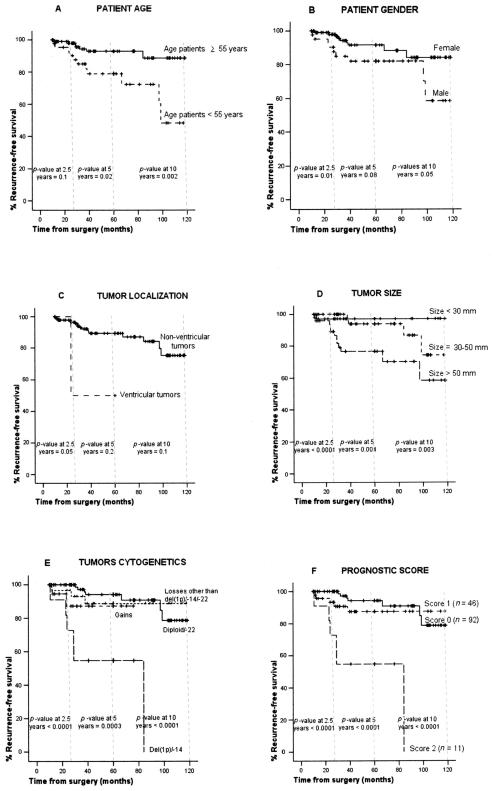Fig. 1.
Recurrence-free survival (RFS) at 30, 60, and 120 months of histologically benign/grade I meningioma tumors (n = 149), according to patient age (A), gender (B), tumor location (C), tumor size (D), and the cytogenetic abnormalities detected in the ancestral tumor cell clone defined as the tumor cell clone carrying only those chromosomal abnormalities common to all tumor cells in the sample (E: diploid/−22; losses other than −22 or −1p/−14; gains; −1p/−14). F shows RFS curves at 30, 60, and 120 months according to the proposed prognostic score for predicting early relapses in histologically benign/grade I meningiomas. In this prognostic score, two variables were considered with a prognostic score of either 0 or 1: tumor size (score 0 for tumors < 50 mm, score 1 for tumors > 50 mm) and the presence (score 1) or absence (score 0) of both monosomy 14 and del(1p36) in the ancestral tumor cell clone.

